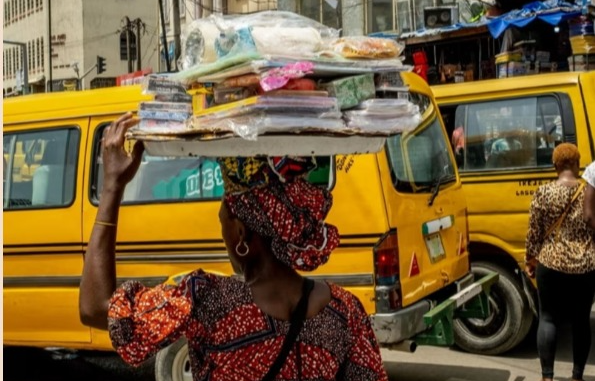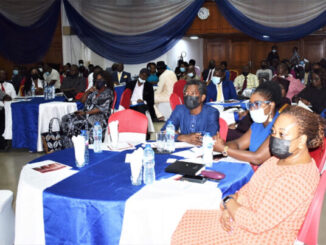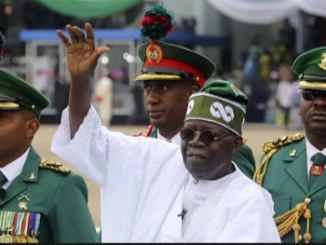
Nigerians are turning to expensive emergency loans to cover the cost of essentials, as the country’s economic woes push more people into poverty and fears grow of a consumer debt crisis. High inflation and a controversial austerity drive by the government have weighed down on Nigerians’ incomes at a time when payday loan providers have become ubiquitous. “You become enslaved,” said Samuel, the owner of a small dry cleaning company in Lagos who declined to give his surname because of the stigma attached to borrowing in Nigeria. At one point he owed money to four different fintechs at interest rates as high as 40 per cent and was paying back one loan with credit from another. The tripling of the cost of petrol since May, following President Bola Tinubu’s removal of $10bn-worth of fuel subsidies, had meant he had “no choice but to borrow”, he said. Recent inflation data highlighted the pressures facing ordinary Nigerians. Food prices are 31.5 per cent higher than they were last year. Bus fares in Nigerian cities have on average risen 117 per cent year on year, according to the most recent data from the statistics agency. The depreciation of the naira has also driven up costs in the import-dependent economy, contributing to an overall rise in consumer prices of 27.3 per cent in the year to October — the country’s highest inflation level for two decades. The World Bank said this year that “entrenched inflation” had driven an additional 4mn Nigerians into poverty. Some 63 per cent, or about 133mn people, were already “multidimensionally poor”, according to government statistics, creating fertile conditions for lenders to capitalise on. The country now has almost 200 licensed online lenders, according to Nigeria’s Federal Competition and Consumer Protection Commission, with more believed to be operating illegally. The apps of market leaders OKash and Palmcredit have more than 5mn downloads. Many lenders attempt to shame borrowers into repaying their loans by messaging people in their phone contacts saying they are in default. Users of OKash are required to grant the apps access to their contacts, location, SMS, calendar and camera when they sign up. The company says on their website that this is “a very important part of evaluation process”. Palmcredit says in its terms and conditions that it requires access to users’ phone history, device identification, contact list, call and text history, and other data. It also warns that it “has the right to alarm contacts to declare the loan if you are late with your payment”. OKash and Palmcredit did not respond to requests for comment. Online lenders typically provide loans without the collateral requirements of most established banks and often charge rates well in excess of Nigeria’s key interest rate of 18.75 per cent and the maximum lending rate of 27.24 per cent for high-street lenders. Central bank data last week showed lending from high street banks rose rapidly over the second quarter. Total consumer credit, of which almost three quarters were personal loans, increased 12.2 per cent over the three months to June. The official data does not capture emergency lending from payday providers. But financial literacy experts and analysts said they were seeing rising numbers of people resorting to emergency funding to bridge the gap between their costs and their incomes. A report by the Lagos-based SBM Intelligence consultancy showed that 27 per cent of Nigerians who had seen their pay decline had borrowed to augment their income. “The quality of life [of Nigerians] has reduced across all income categories,” said Seyi Awojulugbe, senior analyst at SBM Intelligence, who co-led the report. Oluwatosin Olaseinde, founder of the financial literacy service Money Africa, said economic difficulties had made many people “desperate” and vulnerable to “predatory lenders with high interest rates”. “When people can’t meet their immediate needs internally or through help from friends and family, they turn to outside loans,” she said, highlighting the proliferation of online lenders in Nigeria. Oluwakemi Afuye, a seamstress, said she had been inundated with texts to her phone advertising instant loans. While she has not borrowed from payday lenders after hearing horror stories of people being harassed when they default, the mother of one has resorted to salary advances from her employer to cope with the soaring cost of food and transport. “You have to cut your budget,” said Afuye, who has switched to buying groceries at traditional markets where they are cheaper than the supermarkets she used to frequent. “The situation is disheartening.” The rise in the cost of living has led to calls by the country’s labour unions to demand a minimum wage of at least N100,000 ($122) a month, up from the current level of N35,000. The unions have threatened to strike if their demands are not met. There is also increasing anger with the Tinubu government, which has been in place since May, which citizens criticise for extravagance at a time when they are struggling to make ends meet. Afolabi Adekaiyaoja, research analyst at the Abuja-based Centre for Democracy and Development think-tank, said there was a sense among Nigerians that the austerity they were being asked to stomach was not practised by the government. He pointed to the size of Tinubu’s government, the largest cabinet since Nigeria’s return to democracy in 1999, consisting of 48 ministers and more than 20 special advisers — something a senior member of the president’s All Progressives Congress party blamed on “political IOUs” to pay back favours dished out during a bruising election campaign. “The challenge with the government calling on citizens to bear economic sacrifices . . . is that it is at odds with its spending,” said Adekaiyaoja. “The honeymoon is over and the government cannot afford to aggravate an already sensitive situation for Nigerians.” The government’s supplementary budget, approved by parliament and signed into law by the president on November 8, was met with uproar. It included N1.5bn ($1.9mn) for cars for the office of the first lady, N2.9bn ($3.7mn) for the renovation of the president’s living quarters and another N28bn ($35.6mn) for other costs, including the president’s purchase of luxury vehicles. “It doesn’t make sense,” said electrician Kenny Ogunbela. “These things are too expensive and it shows they don’t care about the people.”
Copyright Financial Times



